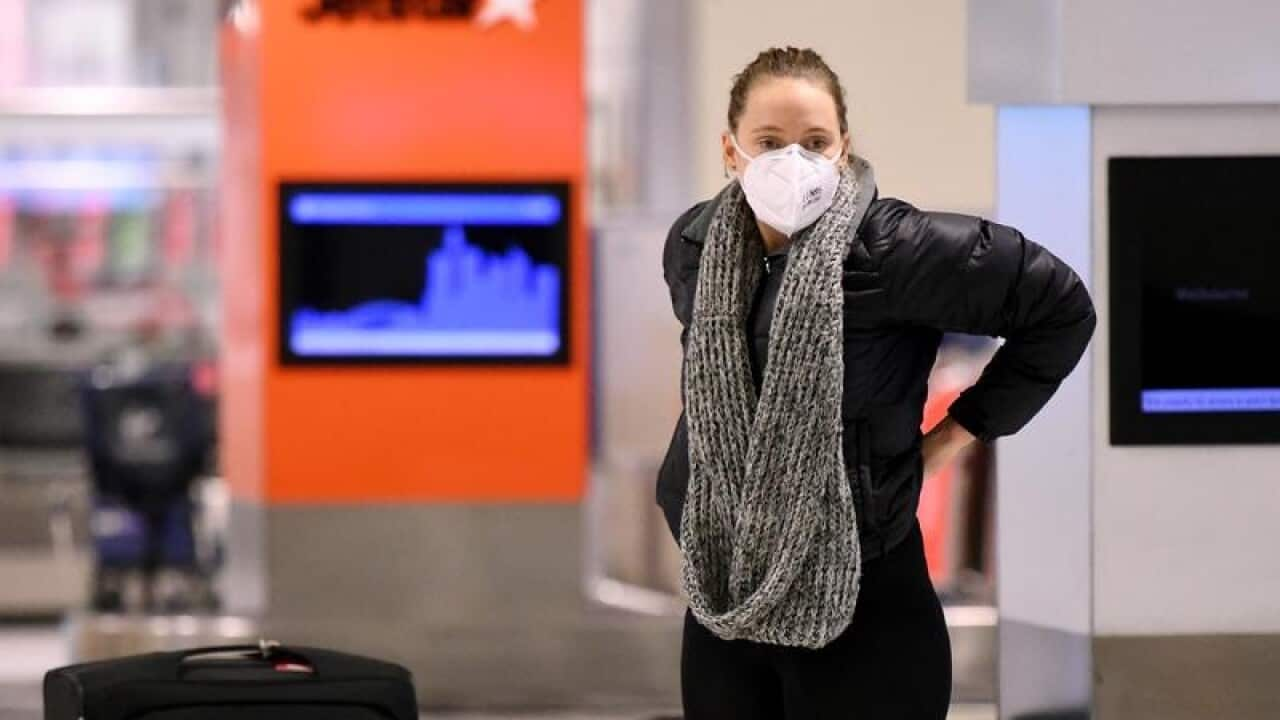Domestic airlines will soon be required to collect and hand over names and contact details of interstate passengers, to assist state and territory health authorities with COVID-19 contact tracing efforts.
Prime Minister Scott Morrison on Friday announced airlines will progressively implement a mandatory data collection regime from 1 October.
They'll be required to collect the names, email addresses, mobile numbers and state of residences of interstate travellers. This information will then be handed over to state and territory contact tracing teams to assist in tracking COVID-19 cases.
“That is just simply to help our state and territory agencies in the contact tracing that they may be required to do, when it comes to tracking when people are moving from state to state,” Mr Morrison told reporters on Friday, following a National Cabinet meeting.
“That information will, of course, be treated sensitively by the states and territories in the same way that public health information is always treated.”
The announcement was welcomed by Queensland Premier Annastacia Palaszczuk, who has been pushing for a mandatory data collection regime for domestic flights since February.
“We have been painstakingly trying to get information from airlines to help with our contract tracing,” she said.
“I just don't think they were sometimes keeping all of that information.”
Authorities have issued public health alerts for several flights where a passenger later tested positive to COVID-19.
Both of Australia's major carriers told SBS News they have already introduced additional requirements for customers to provide contact tracing information.
A Qantas group spokesperson said both Qantas and Jetstar were already providing flight manifests on request to health authorities for contact tracing purposes.
Jetstar already collects all of the mandatory data required by the government, while Qantas will update its booking process to meet the requirements.
A spokesperson for Virgin Australia said passengers were required to fill out a COVID Safe form before departure, and had been "proactively providing basic manifests to relevant state police" since July.
World Health Organisation Advisor Professor Marylouise McLaws said the expansion of data collection on domestic flights was a “logical step” in the fight to contain the virus, especially as calls grow for state borders to be re-opened.
“Collecting this data is really important. It’s the same as going into a restaurant or anywhere else,” she told SBS News.
“It’s eminently sensible and it’s the way to go, if you want to open up all the borders.”
But privacy advocates have raised concerns about the growing amount of personal data being requested by governments for contact tracing purposes.
“The general issue is one of the proportionalities between the intrusiveness, the risk and the cost involved versus the benefits and the requirements,” Australian Privacy Foundation chair David Vaile told SBS News.
“There's quite a lot of identity information required for you to travel on an airline already.”
Mr Vaile said Australia’s data protection laws were already not strong enough to protect citizens in case of a breach of information. He said safeguards needed to be put in place to make sure data was safely stored.
“There should be a sort of review - how long should you keep this data? And can you use it for other things,” he said. Mr Morrison also announced National Cabinet had agreed to connect the digital contact tracing systems across all state and territories.
Mr Morrison also announced National Cabinet had agreed to connect the digital contact tracing systems across all state and territories.

Prime Minister Scott Morrison speaks following a National Cabinet meeting on 18 September. Source: AAP
He said the lessons learnt during a meeting between NSW and Victorian health authorities last week would be "spread across all the other states and territories".
Tracing teams across different states and territories would be able to work together 'if there were to be an outbreak in a particular place'.
“We would be able to swarm, harness the tracing capabilities of more states and territories, to plug in to the tracing work that is being done in that particular jurisdiction,” Mr Morrison said.
Professor McLaws said a national approach would make an “enormous difference” in the fight to test, trace and isolate the virus.
“Contact tracing is one of the most pivotal infection-prevention approaches to identifying potential sources for the next generation of outbreaks,” she said.
“You can get quickly overpowered by the numbers, the sheer numbers every day, particularly if people aren't in lockdown.
“So, this is a very sensible approach.”
People in Australia must stay at least 1.5 metres away from others. Check your state’s restrictions on gathering limits.
If you are experiencing cold or flu symptoms, stay home and arrange a test by calling your doctor or contact the Coronavirus Health Information Hotline on 1800 020 080.



